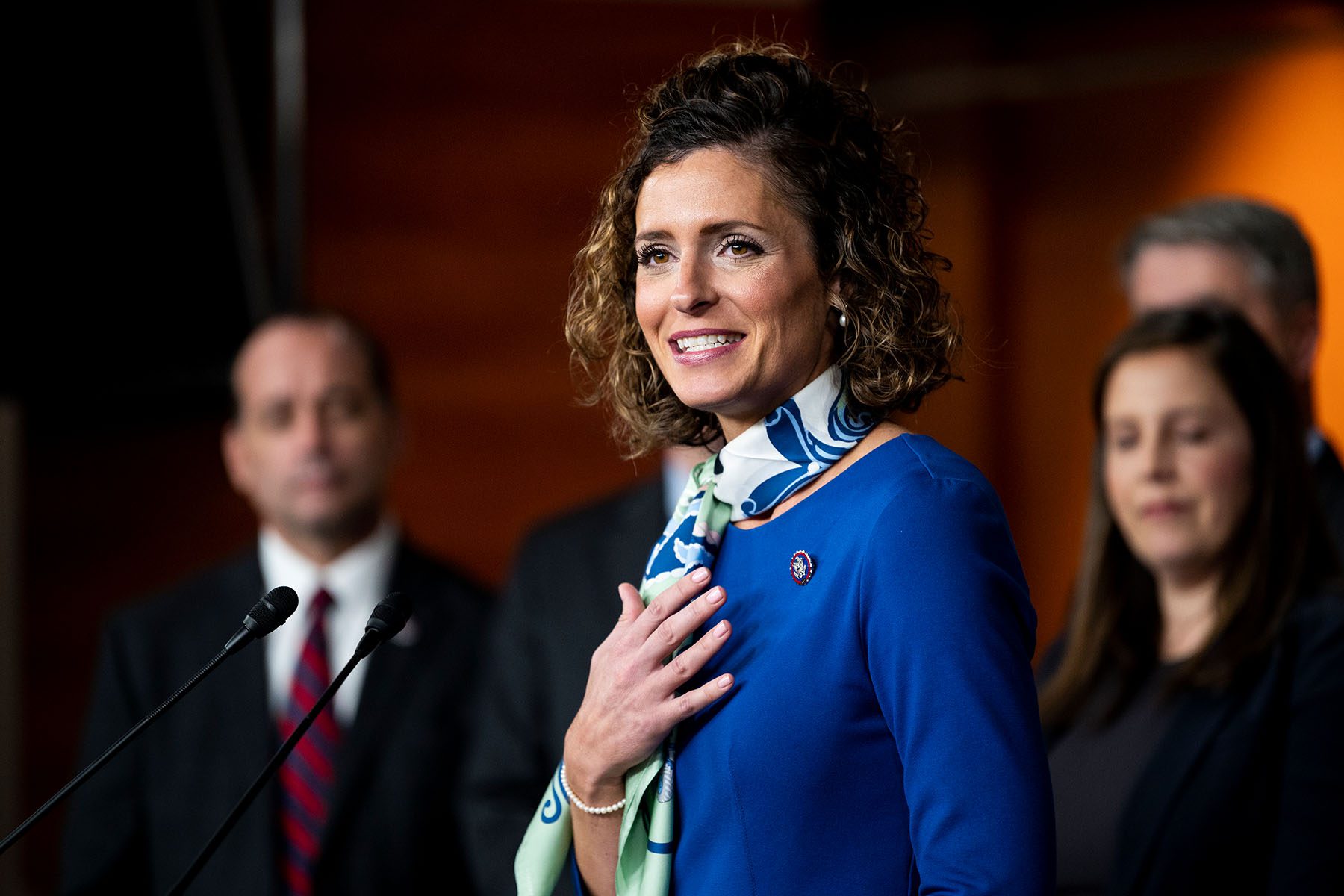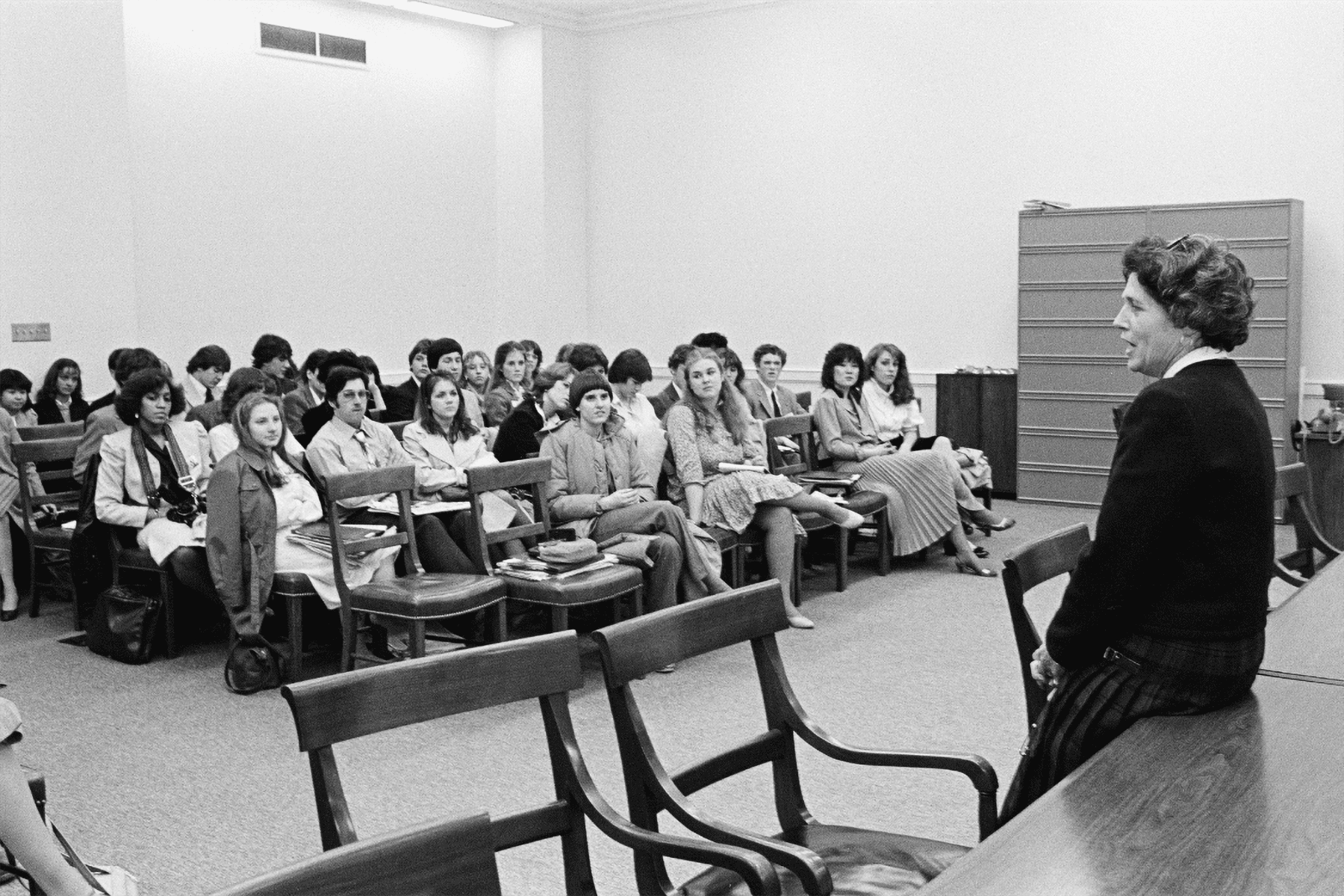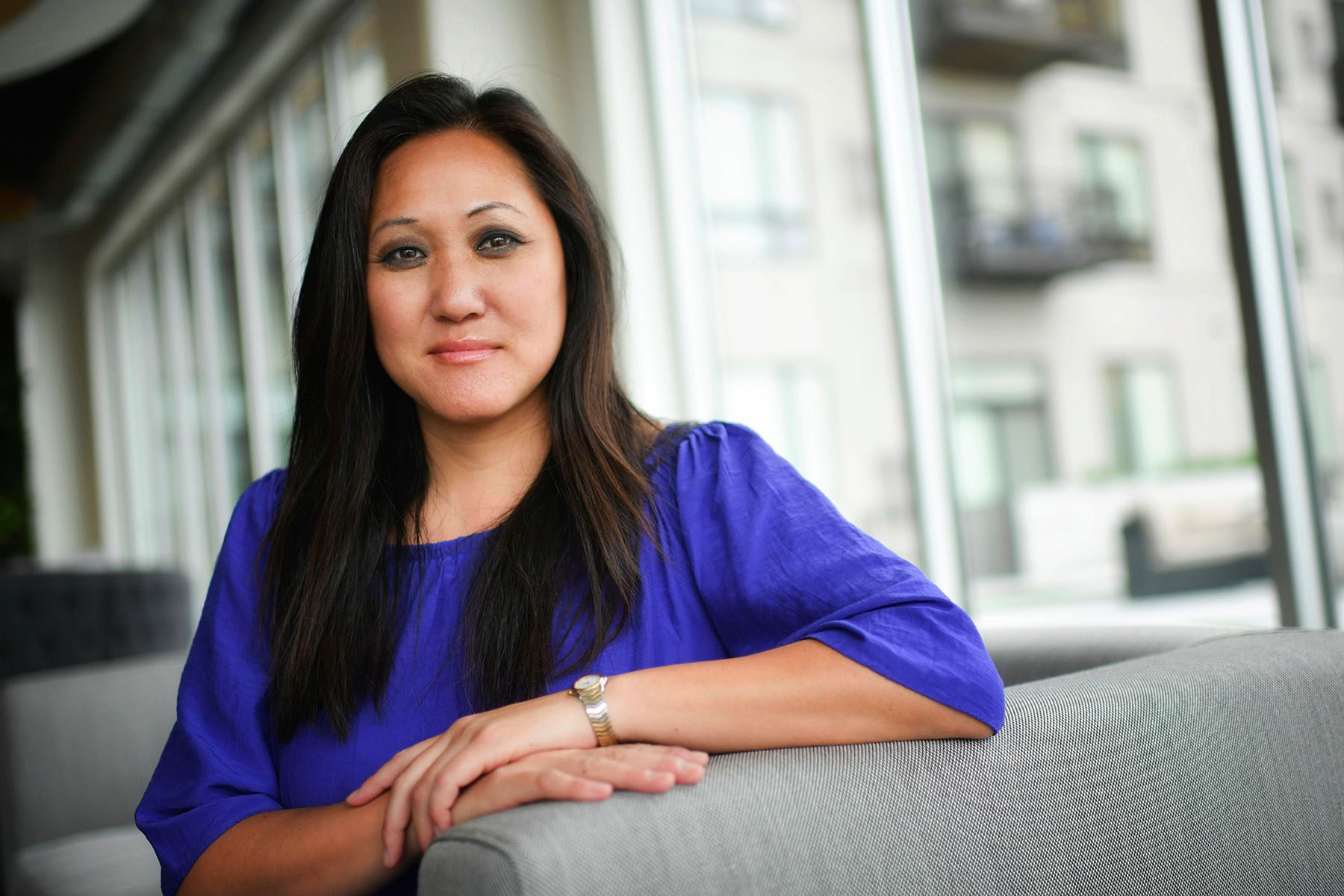When Rep. Sonny Bono died during a family skiing trip in 1998, filling his California congressional seat was the last thing his wife, Mary Bono, was thinking about. She was grieving and had a 6- and 9-year-old to care for. But within days, Republican leaders — including former President Gerald Ford, former Vice President Dan Quayle and then-Speaker of the House Newt Gingrich — reached out, encouraging Bono to carry on her husband’s legacy.

Bono, who was 36 at the time and had no experience in elected office, ran for the seat and won. She went on to serve eight terms, becoming one of the more successful members of an unconventional group in American politics: widows who took the congressional seats of their late husbands. This week, the group could get closer to adding another member.
The first widow to replace her husband’s congressional seat was Mae Ella Nolan, representing California in 1922. In following years, dozens followed: Forty-eight women have gained political power in Congress through something experts call “widow succession,” a term used to describe the fairly successful avenue to elected office, according to data from the Center for American Women and Politics (CAWP).
For most of the 20th century, more than 80 percent of widows who ran for office won in the House, compared to only 14 percent of their non-widowed women counterparts. Nearly a century after Nolan, Julia Letlow of Louisiana became the most recent widow to win her election in 2021. Letlow and Doris Matsui of California are the only two widows currently serving in Congress, though Jennifer Carnahan could join their ranks if she wins the Republican primary in Minnesota this week.
Carnahan’s husband, Rep. Jim Hagedorn, died of kidney cancer in February. In a March statement announcing her intent to run, Carnahan said: “Though my heart is still heavy after Jim’s passing, the encouragement I have received from throughout southern Minnesota has inspired me to carry on his legacy by running to complete the remainder of his term. In the final weeks before his passing, Jim told me to keep forging ahead, to keep reaching my dreams, and to win this seat.”

Carnahan is running in the Republican primary for Minnesota’s 1st District on Tuesday and is considered among the top three candidates, though none received the endorsement of the Republican Party. She has not received some of the high-profile endorsements some of her primary challengers have netted, and has dealt with scandal throughout her campaign, including allegations just days ago that she owes members of her husband’s family money for medical bills.
Still, regardless of the outcome, the paths of other widows in Congress can be instructive about the state of women in politics, both historically and now.
Vacant seats in the House are filled through a special election, while those in the Senate are typically filled by governor appointment. Of the nearly 50 widows who became members of Congress, about half continued to serve for more than four years. About a dozen served for more than a decade.
“In the cases where [the death] is sudden, oftentimes the party will turn to the widow as a placeholder to help them regroup in that moment and run someone who had the name recognition … and knew better than anyone their husband’s agenda,” said Debbie Walsh, the director of CAWP.
“Widow succession” is no longer the main viable path for women to access political power. But historically, it was one of the only ways available under the law. Coverture, the very thing that put wives under their husband’s protection and authority, also gave women more autonomy once they were widowed.
“For much of American history, being a widow was a really much more powerful position to be in [when compared to other women], especially if your husband happened to have been wealthy,” said Allison Lange, an associate professor of history at Wentworth Institute of Technology.
“Widow succession” also allowed women to skirt some of the questions of electability that they face when they run for office, said Jennifer Sacco, a professor of women’s and gender studies and chair of the philosophy and political science department at Quinnipiac University. Gender, marital status and race play a role in that, she said. For instance, the creation of the federal welfare system — which included the Social Security Act and the National Labor Relations Act — in the 1930s primarily benefited children, women who had children and widows. Women were granted access to the benefits of citizenship largely through the role of motherhood and proving to be a “fit mother” to “good citizens,” particularly White male ones.
“Being a single woman is bad, but if you’re single through no fault of your own because your husband died, then you are worthy of some sort of benefit,” Sacco said. “They are a special class of people — and we are talking about White women, historically — as opposed to unwed mothers or those who left a man or those who had children with multiple men who are all still living.”
Widows, both historically and now, have largely been viewed as sympathetic figures whom people trust and value politically. They still have an advantage when compared to other women running for office today, Sacco added: they haven’t committed the “sin of ambition.”
“They’re not seen as un-feminine,” Sacco said. “They didn’t go looking for the position. The position finds them because of the circumstances of their life.”
Still, as several experts noted, the “widow succession” was almost exclusively for White women. For women of color still faced boundaries White counterparts didn’t, according to Courtney Burns, assistant professor of political science at Bucknell University. Candidates generally need to gain the favor of their party’s elite — who tend to be White men — to win primary elections given the way districts are drawn.
“Women, especially women of color, face stereotypes about whether they’re fit for office, whether they have the ability to remain rational and not become too emotional,” Burns said. Only two women of color — Rep. Cardiss Collins and Rep. Doris Matsui — have followed the “widow succession” model when serving in Congress.

Carnahan (not to be confused with Jean Carnahan, another widow who succeeded her husband in the Senate, representing Missouri from 2001 to 2002) was born in South Korea and adopted by Minnesotans. She does not share some of the factors that experts say may have helped other widows win their husbands’ seats: She does not share a last name with her late husband, she was married for less than five years, she lacks the support of her party, and she had her own political career that was marred with scandal.
The fact that Carnahan even had her own political career before her husband died is rare. Political science research shows that the question of electability is so ingrained in society that women have internalized this doubt, resulting in a lack of political ambition, said Suzanne Chod, a political science professor at North Central College.
“Women tend to adopt this gendered psyche: that arena isn’t for me; I’m not good enough even if I’m more qualified than the men who are winning; my yardstick for qualification is different than everybody else’s. Some of that is internal sexism,” Chod said.
When Rep. Goodloe Byron died of a heart attack in 1978, Beverly Barton Butcher Byron, his wife, certainly didn’t think she could take his spot. But in an unusual twist, she had a close example to look to. Her father-in-law, also a former member of Congress, had died while in office in an 1941 airplane crash. Her mother-in-law, Katharine Byron, took his seat. So like her mother-in-law before her, Beverly found herself a widow being asked to run for her husband’s seat and eventually represented Maryland’s 6th District.

“The governor came and asked if I would put my name forward, and I said, ‘Oh, I can’t possibly do that,’” Beverly said in a 2016 interview. “My two sons, who at that time were 22 and 23, said, ‘She’ll run’ … It all transpired very, very quickly.” Beverly went on to serve for more than a decade and became the first woman to chair an Armed Services subcommittee.
Bono hesitated initially as well. It wasn’t until her mother told her to run that she took the leap.
“Sonny and I weren’t completely aligned politically; I was more of a moderate,” Bono said. “So I knew if I did it, I could finish out the items that he had pending in the Congress at the time, but then I would have to have my own agenda and be my own person or it wouldn’t work.”
In her 15 years on Capitol Hill, Bono said there were far fewer women, particularly Republican women, when she was first elected to Congress. Women politicians were still expected to wear certain clothes and have certain haircuts. She said she constantly had to “walk a fine line between being a flirt and being a bitch,” as well as tolerating “locker room talk” from certain colleagues.
There were a few other widows serving in Congress at the same time, Bono said, including Lois Capps, who represented California from 1998 to 2017. When asked whether she ever regretted following her mother’s advice to run for office, Bono’s response was reflective: “If you’re asking me as a professional woman, I am happy that I decided to run for my late husband’s seat. Do I think that my children paid a price? Absolutely.”
By the time she left office in 2013, she said, the number of women in office had dramatically increased and the culture had improved for both women members and staffers. And the political landscape continues to look increasingly welcoming to women, many experts noted.

“Attitudes have softened towards who is allowed to run for office,” Sacco said. “It’s more acceptable for women to do this kind of stuff. It’s not 100 percent, but it’s more acceptable than it was … There’s also more of a push for women candidates to show what they can do outside of their attachment to powerful men.”
Walsh, who helps track the number of widows in office at CAWP, said women in recent years are running in their own right and winning.
“Now, [widow succession] is more of an unusual path for women,” Walsh said. “But we’ve yet to see this for a husband who comes in when their wife dies to take their seat. Maybe that’s when we’ll know we’ve achieved a certain kind of gender equity.”








